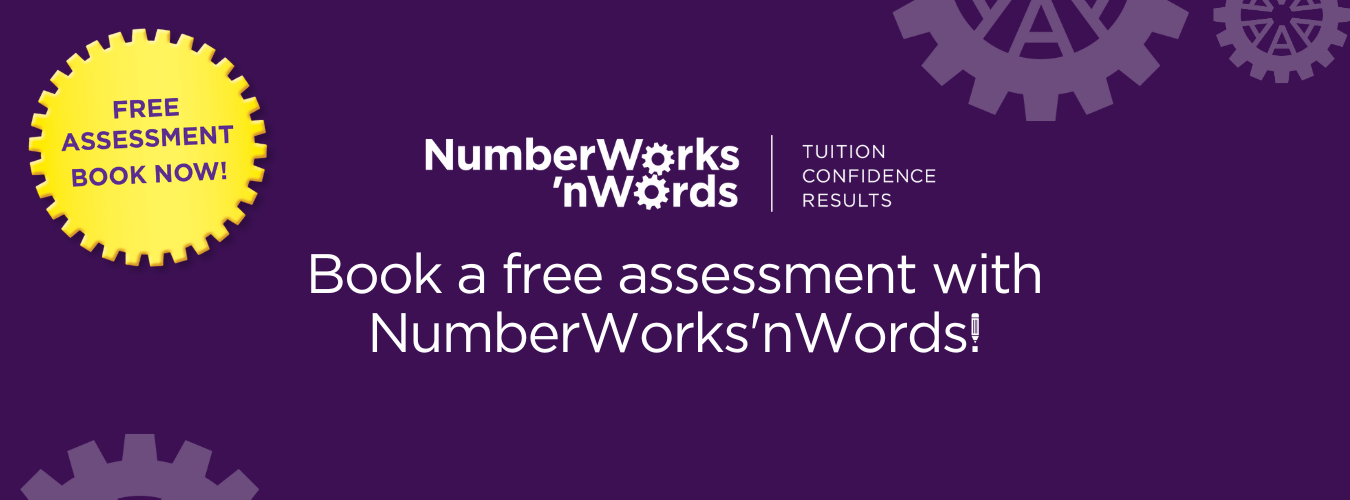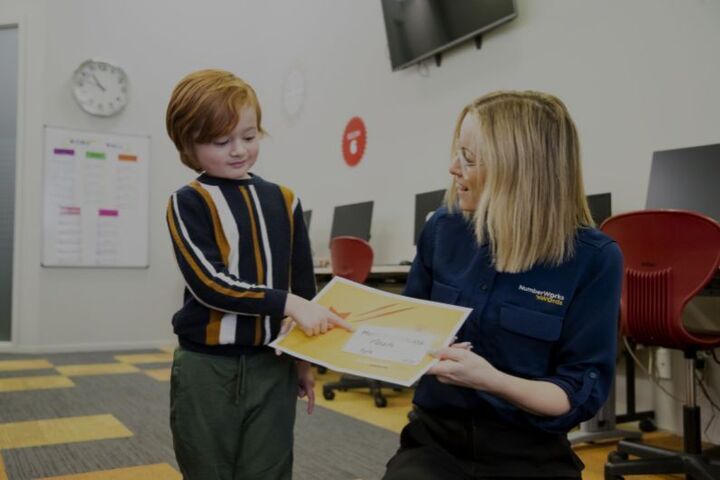Unraveling the Web of Learning Myths
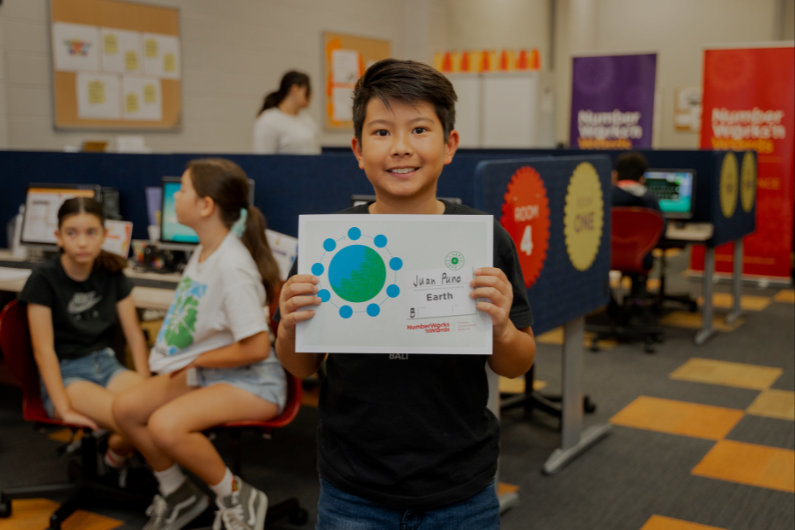
In our dynamic world, the relentless pursuit of knowledge and continuous learning remains pivotal. However, within the vast expanse of information, pervasive myths surrounding effective learning have taken root in popular culture. This blog seeks to dismantle these misconceptions, providing evidence-based insights to steer you towards more enriching learning experiences.
Myth 1: Learning Styles
The belief in one-size-fits-all learning styles has long been ingrained in education. Yet, research not only refutes this notion but also suggests that individuals may benefit from a variety of learning styles depending on the context. Recognising this, educators can enhance their teaching methods by incorporating diverse approaches that cater to the multifaceted nature of learning. By embracing the dynamic nature of learning preferences, we pave the way for a more inclusive and effective educational experience.
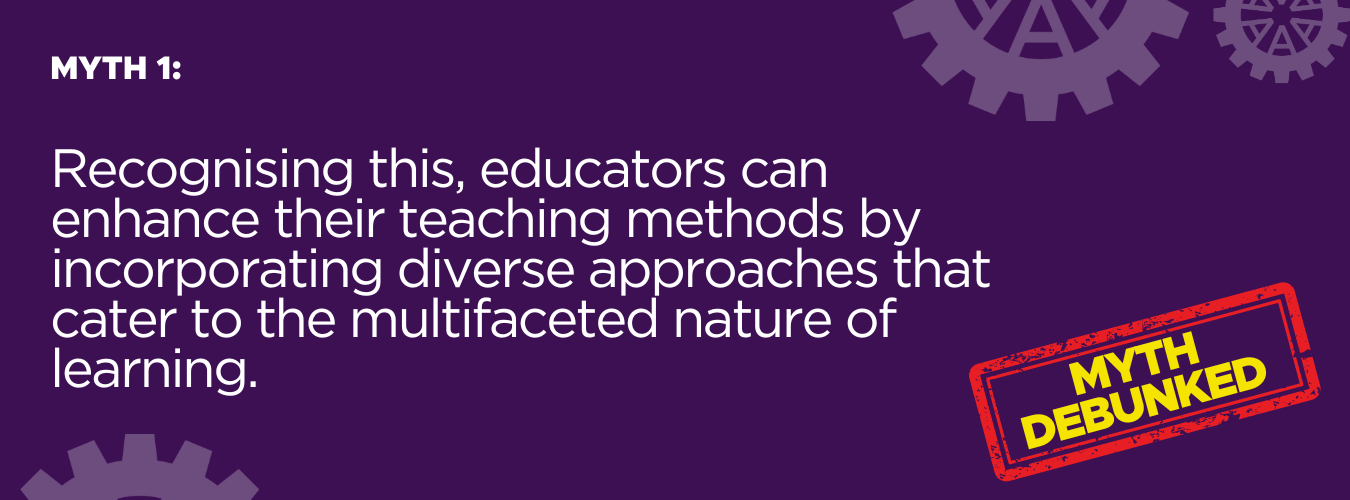
Myth 2: The 10,000-Hour Rule
Popularised by Malcolm Gladwell, the 10,000-hour rule asserts that expertise is achieved through extensive practice. While practice is undeniably crucial, the reality is more nuanced. Various factors beyond time spent in practice, such as the quality of practice and the incorporation of deliberate learning strategies, contribute significantly to the development of true expertise.
Understanding these nuances allows aspiring experts to approach their craft more effectively, focusing on deliberate and purposeful practice rather than merely clocking in hours.
Myth 3: Multitasking Improves Learning
While many believe multitasking enhances productivity during learning activities, the fallacy of this myth becomes apparent when considering cognitive costs and diminished information retention. Neuroscientific research reveals that the brain struggles to efficiently switch between tasks, leading to reduced cognitive performance.
By advocating for mindful learning and emphasising single-task focus, individuals can optimise their cognitive resources, resulting in improved comprehension and retention. Cultivating a mindful approach to learning is key to unlocking the full potential of our cognitive abilities.
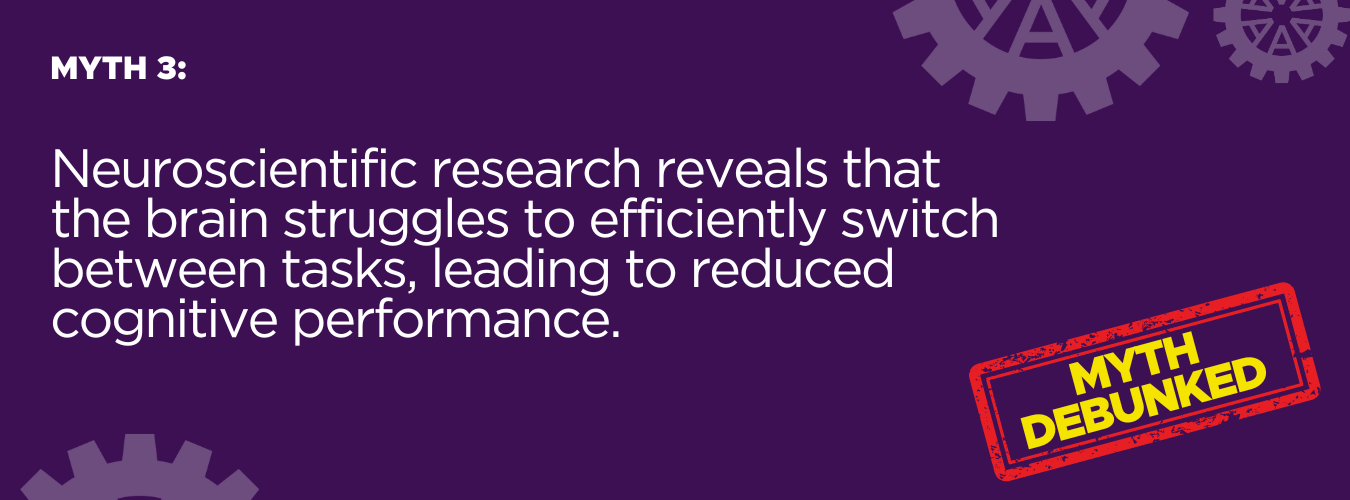
Myth 4: Cramming for Exams is Effective
Cramming before exams, often viewed as a shortcut to success, is challenged by research advocating for spaced repetition and distributed learning. Studies indicate that information consolidated over time through spaced repetition leads to more robust and enduring memory retention.
Implementing a strategic study schedule prioritising consistent revision allows for deeper understanding and better recall during exams. Shifting from cramming to a more structured approach empowers learners to enhance their long-term retention and overall academic success.
Myth 5: Intelligence is Fixed
Contrary to the belief in fixed intelligence levels, fostering a growth mindset is crucial. Research supporting the idea that intelligence is malleable encourages individuals to cultivate a mindset of continuous improvement. Psychological studies suggest that individuals with a growth mindset are more resilient in the face of challenges and are more likely to embrace learning opportunities.
Cultivating a belief in the ability to develop intelligence through effort and perseverance empowers individuals to overcome obstacles and reach their full learning potential. Shifting from a fixed to a growth mindset is a transformative step toward a more fulfilling educational journey.
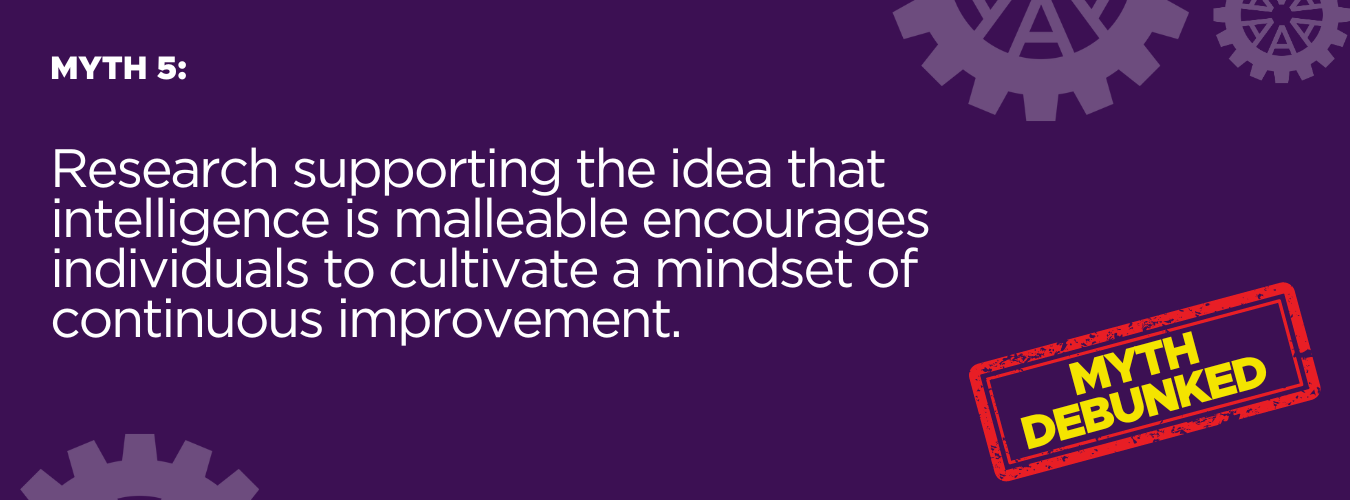
Myth 6: Learning is Limited to Formal Education
Dispelling the myth that learning exclusively occurs in formal academic settings, this section delves into the significance of informal and self-directed learning. The rise of online platforms and open educational resources has democratised learning, granting individuals the autonomy to pursue knowledge on their terms.
Embracing informal and self-directed learning fosters passion-driven education, allowing individuals to transcend the limitations of traditional educational structures and tailor their learning journeys to their unique needs.
Myth 7: The Mozart Effect
Examining the widely held belief that listening to classical music enhances intelligence, this section debunks the Mozart Effect myth by highlighting limited evidence and exaggerated claims. While certain types of music can positively influence mood and focus, the specific notion that listening to Mozart enhances intelligence lacks substantial scientific backing.
Understanding the nuanced relationship between music and cognitive functions empowers individuals to make informed choices about incorporating music into their learning environments, exploring diverse genres and personal preferences to create a customised auditory experience that complements their study habits.
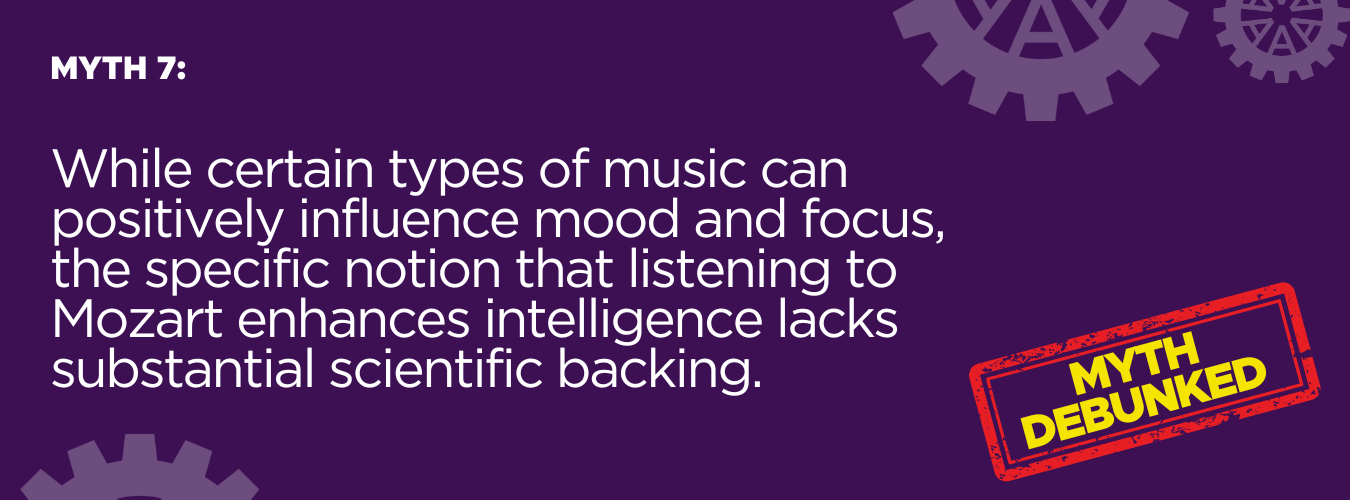
Myth 8: More Learning Hours Equal Better Results
Challenging the belief that the quantity of study hours guarantees success, this section emphasises the importance of quality over quantity. Recent studies in cognitive science underscore the significance of focused and deliberate practice over prolonged hours.
Incorporating breaks and adopting efficient study strategies not only enhances cognitive performance but also prevents burnout. By redefining the approach to learning hours, individuals can achieve better results with less time, fostering a more sustainable and effective learning routine.
Myth 9: Talent Over Effort
Debunking the myth that success is solely determined by innate talent, this section highlights the role of deliberate practice and hard work in skill development. Effort and perseverance emerge as more reliable predictors of success, challenging the notion that talent alone determines one's trajectory.
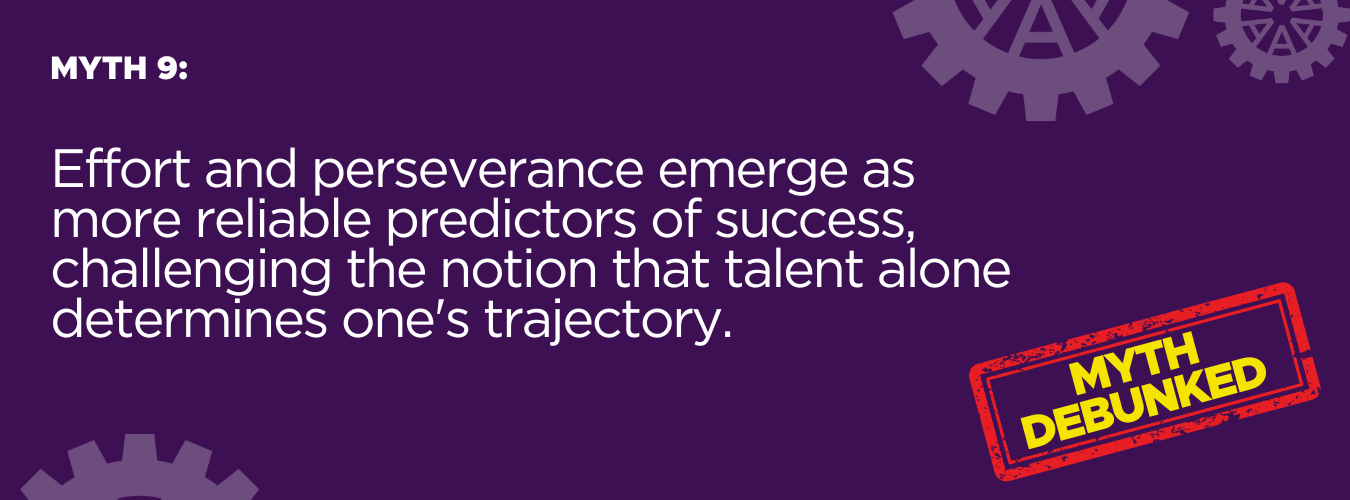
Myth 10: Learning Should Be Serious and Solemn
Dispelling the belief that effective learning must be a serious endeavour, this section explores the benefits of incorporating play and humour into the learning process. Neuroscientific studies reveal that positive emotions associated with play and humour activate brain regions conducive to learning and creativity.
Integrating elements of play and humour not only makes learning more enjoyable but also stimulates cognitive processes, fostering a positive and engaging environment that enhances motivation and retention. By embracing a lighthearted approach to learning, individuals can cultivate curiosity and sustained interest in the subject matter.
Myth 11: Memorisation Equals Understanding
This section examines the misconception that rote memorisation leads to true comprehension, delving into cognitive science insights. Highlighting the findings of cognitive psychology research, we emphasise that meaningful learning involves connecting new information with existing knowledge, fostering comprehension and critical thinking.
While memorisation serves as a useful tool, it should be complemented by active engagement and the application of knowledge. Encouraging a deeper understanding of concepts allows learners to move beyond rote memorisation, fostering a more profound and enduring grasp of the subject matter.
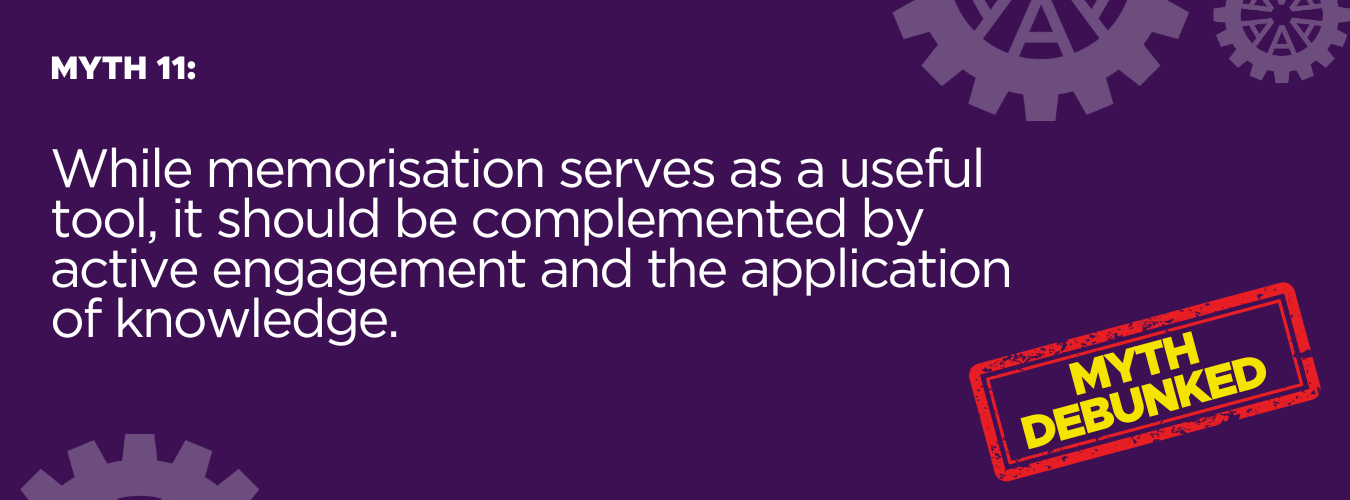
Myth 12: Technology Hinders Learning
Addressing concerns about the negative impact of technology on learning, this section explores how technology can enhance educational experiences when used responsibly. In the modern era, navigating the digital landscape becomes essential for effective learning. Technological advancements provide unprecedented opportunities for interactive and personalised learning experiences.
Thoughtful integration of technology into educational practices facilitates access to a wealth of information, collaboration, and diverse learning resources. By fostering a balanced and responsible approach to technology use, individuals can harness its potential to enrich their learning journeys and stay abreast of evolving educational landscapes.
As we debunk these learning myths, it is crucial to empower ourselves with evidence-based practices. By embracing individual preferences, fostering a growth mindset, and incorporating effective learning strategies, we can navigate the learning landscape with confidence.
At NumberWorks’nWords, we don’t believe in these myths as we know they can hold students back and knock their confidence. Instead, our in-centre tuition is customised to each child, so whether they are learning to read, and write, learning basic numeracy, preparing for English and maths exams, or looking for extension work that challenges them, tutoring at NumberWorks’nWords can help boost their results and confidence.
